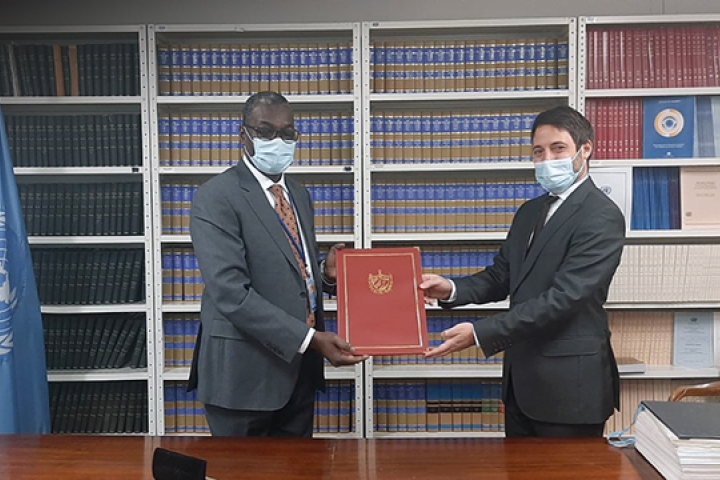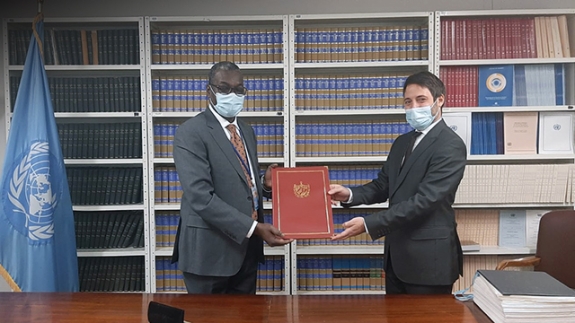Cuba joins the Comprehensive Nuclear-Test-Ban Treaty
Vienna, 4 February 2021
Cuba has joined the Comprehensive Nuclear-Test-Ban Treaty (CTBT), becoming the 185th country to sign and the 169th to ratify the Treaty and bringing it closer to universal recognition for a safer and more peaceful world.
The country deposited its instrument of ratification on 4 February, 2021, with the United Nations Secretary-General in New York. The move was later marked in a virtual ceremony by Cuba’s Ambassador in Vienna, HE Loipa Sánchez Lorenzo, and Lassina Zerbo, Executive Secretary of the Comprehensive Nuclear-Test-Ban Treaty Organization (CTBTO).
“Cuba’s historic move demonstrates the country’s enduring commitment to disarmament. It also underlines the continuing engagement of Latin America and the Caribbean region, which established the world's first zone free of nuclear weapons in a densely populated area, the Treaty of Tlatelolco, in 1967,” the Ambassador said.
Zerbo hailed Cuba’s ratification and expressed his highest gratitude for the country’s leadership. “Today Cuba brings the CTBT closer to its universalization, for a safer and more peaceful world for now and generations to come.
“Cuba leads the way for other States which have not yet done so to join the CTBT and close the door to nuclear testing, for all, and for good. Its decision helps reinforce a much needed trust within the international community. As the world calls for collective solutions to address pressing challenges, let me commend Cuba and call upon remaining states to sign and ratify the CTBT with no further delay, for lasting peace and stability.”
Constructive dialogue between Cuba and the CTBTO has been building in recent years, with the country taking on Observer status at the CTBTO’s Preparatory Commission in 2015. Zerbo has made several visits to Havana, most recently in 2019, where he met senior officials and launched information seminars for diplomats, scientists and experts in various disciplines to support Cuba’s assessment on joining the CTBT.
“The ability to benefit from the CTBTO’s technologies, data and capacity-building programs contributed to Cuba’s decision to join the CTBT. Access to these will allow Cuban experts to reinforce and broaden their work in a number of civil and scientific fields, particularly natural disaster modeling and preparedness for Cuba and the region,” the Ambassador said. “Cuba’s decision also demonstrates the power of science in contributing to effective policymaking and diplomacy, helping to balance strained relationships, keep communication channels open and build much-needed trust,” she added.
Background
The CTBT bans all nuclear explosions everywhere, by everyone, and for all time. Adherence to the Treaty is nearly universal, but it has not yet entered into force. To do so, it must be signed and ratified by all 44 States listed in the Treaty’s Annex 2, of which eight are still missing. The CTBTO has established an International Monitoring System (IMS) to ensure that no nuclear explosion goes undetected. Currently, 302 certified facilities – of a total of 337 when complete – are operating around the world. The data registered by the IMS can also be used for disaster mitigation such as earthquake monitoring, tsunami warning, and the tracking of the levels and dispersal of radioactivity from nuclear accidents.

